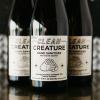Serenbe Is Metro Atlanta's Oasis of Sustainability
Day Tripper

Photo Credit: Ali Harper
If you like to shop at farmers markets, drive an electric car, fret about climate change and want to experience a heightened sense of community, you owe it to yourself to visit Serenbe, a community only 30 miles south of Atlanta but light years from its congestion and stress.
Serenbe provides a model of sustainability in a sea of suburban real estate development. Organic farm? Check. Stormwater management? Check. Efficiently designed homes linked to geothermal systems in New Urban neighborhoods? Check. Commitment to the arts, including an artist-in-residence program and an on-site professional theater company that performs solely in gorgeous outdoor settings? Check, check, check.
Founded by Atlanta restaurateur Steve Nygren (Mick’s, Pleasant Peasant) almost by accident when he and his three daughters decided one day to go to the country to hang out with farm animals at an open house, Serenbe provides rare insights into the way a community can provide a near-ideal setting for people seeking a better life.
That fateful day in the early 1990s, Nygren says, he was so impressed by the joy he saw in his girls’ eyes that he bought the place on the spot with the intention of using it as an occasional weekend house, little knowing that his days as a restaurateur were coming to a close and a new chapter as a visionary community builder was soon to open for him.
Visitors came and went—and sometimes stayed for months—and Nygren, ever the entrepreneur and sniffing an opportunity, began setting up some outbuildings to accommodate a bed and breakfast. When a neighbor decided to clear-cut part of his property, Nygren went into community organizer mode and in time, over numerous dinners, persuaded the owners of 40,000 nearby acres to agree to a radical land-use plan to deter suburban sprawl by limiting house development to 30% of the land, leaving the remaining 70% for natural woodlands and fields.
Meanwhile, Nygren plunged into the literature of alternative development, wellness and community building, and explored the ways people interact with their environment. He read an Urban Land Institute study that found that 90% of people who live on golf courses play the game only twice a year, paying the premium simply to enjoy open green spaces. He likes to repeat a quote from Andres Duany, the father of New Urbanism: “Agriculture is the new golf,” reflecting the evolving role of picturesque farms in marketing residential real estate.
There are now 400 homes that have been built since 2004, with 700 residents ranging in age from small children who may attend the on-site Montessori school to seniors who volunteer with the Community Care Network, a group that supports individuals who need help. The Serenbe lifestyle comes at a cost, though—home prices range from the mid-six figures to over $1 million.
The community is laid out on winding streets that trace the path of nearby streams in a series of small “hamlets,” or neighborhoods, with a bookstore, wine shop, general store and other useful amenities within walking or biking distance. Home design ranges in style from modernist to Craftsman and farmhouse vernacular. Many of the homes in a new hamlet called Mado (“Life in balance” in Creek) were inspired by Nygren’s recent visit to Scandinavia. The untamed natural world is always close at hand, feeding the “biophilia” that guides the property’s design philosophy. And don’t look for well-manicured lawns: Many of the gardens and landscapes were designed by the late gardener Ryan Gainey and reflect his exuberant, naturalistic style.
Day trippers have lots of options for overnight or longer stays. The 27-room Inn at Serenbe, once the original farmhouse and the Nygrens’ first home on the property, offers plenty of pampering. The inn also rents out homes in the community for large groups, and is popular for weddings. Visitors have access to many of the community’s amenities, including a pool, spa, gym, bike or golf cart rental and even the meditation labyrinth. There are five restaurants on site, including a sushi bar, a casual bakery/café and two fine dining restaurants, one located at the inn.
Through Aug. 18, the Serenbe Playhouse is running a superbly tuneful, energetic production of Hair, the ’60s rock musical, at an outdoor stage in a big meadow on the property. The bar for refreshments is a Merry Pranksters-style bus painted in the psychedelic colors of the day.
Closer to home, the success of Serenbe might prompt the residents of Shoal Creek Farms who are trying to block Diamond Hill Farm from continuing to grow organic vegetables on their land to ask themselves: Are they perhaps missing out on the benefits of the growing “agrihood” trend exemplified by Serenbe?












comments